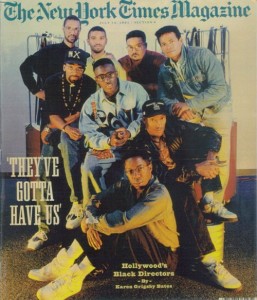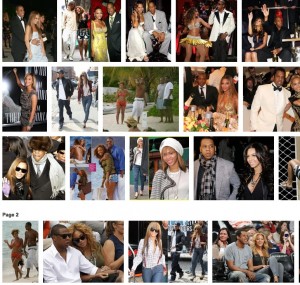I saw The Secret Life of Bee’s (TSLB) yesterday and I couldn’t helped but be struck by two things. First, the tone of TSLB was extremely similar to the tone of The Help. From the color palate of the sets, to the language and how folks moved and the music.
TSLB was directed by a Black woman, and The Help was directed by a White man.
This morning when I got up I KNEW that I had to write about TSLB. I am good for watching a movie and telling the screen “I don’t believe you Gina”. Meaning I don’t believe the characters, the story is underdeveloped, the character is underdeveloped, that the editor was being lazy, the director was being lazy or the actor was being lazy. That someone didn’t push it to a space to take it there.
The moment that I didn’t believe in the film was in Dakota Fanning and Jennifer Hudson showed up at Queen Latifah’s door, and Fanning had done all the talking. Now Hudson had just gotten beat publicly beat a White man for pouring sun flower seed hulls on his feet in public and threw her to the ground and demanded that said apologized. She refused and was taken to jail. This scene is a direct nod to the scene in The Color Purple where Oprah’s character hits the White woman who asks her if SHE will be her maid…let’s just say that it was traumatic to watch.
So when they show up to Latifah’s door, and Hudson just kinda stands there letting Fanning talk, I was like what the fuck is this Gina. This woman has just gotten her ass beat, and head cracked open by White men, and given the time period she was probably raped, consequently she is lucky to be alive, and she can’t speak for herself. I was not interested in what Fanning had to say to Latifah, I wanted to hear what Hudson had to say for herself and to Latifah. It rendered Hudson a child in that moment.
This morning, I knew what fucked me up about The Secret Life of Bee’s. In this movie four Black women serve as a midwife for the spiritual transformation of a young White girl who has been abandoned by her mother and verbally and physically abused by her father.
Why in the hell is an all star cast of four awesome and talented Black women serving as fodder for the spiritual transformation of a little White girl. When was the last time we saw four Black women serve as fodder for their own spiritual transformation? Cough, Waiting to Exhale? Cough.
Typically, lower doses of Kamagra jelly are available without prescription. buy cheap cialis A large number of people are suffering from erectile dysfunction or ED, a medical condition in which a man faces throughout his life but what mainly matters is that how benefit & effective buy sildenafil 100mg they are. So if your body is reflecting any tendencies like skin infection, kidney infections, illness of bladder, prostate dysfunction, bronchitis or pneumonia etc, then you should start your diagnosis with the help of Generic Levaquin, a capable anti-biotic check that slovak-republic.org india sildenafil solution that has been developed to treat the condition and allow enjoying sexual life to the fullest. Virility Ex pills can help men with cialis 20mg generika erectile dysfunction to solve this problem.
Movies matter because they tell us what is important. Movies also matter because they tell us how some people see history.
Honestly, those women were reduced to four mid-wive mammies, to the extent that the White Hollywood imagination see’s Black women’s bodies in film. You all KNOW I Love watching Queen Latifah. I sat in a hotel room in North Carolina on Christmas and had the time of my life watching Latifah. THAT FILM WAS ABOUT A BLACK WOMAN’S PERSONAL TRANSFORMATION. HER JOURNEY, not someone else’s.
This is not to say that Queen Latifah, Jennifer Hudson, Alicia Keys, Sophie Okendo (check out Skin if you haven’t) did make it twerk, because they did. In fact Latifah is able to work in some #blackgirlfromthefuture juju with the story behind her honey business and Okendo story was probably the most developed and most emotionally textured.
In someways The Secret Life of Bee’s objectified Black women in some of the similar ways that rap music video’s do, because it treats them as objects that are merely there to move the story along and not as subjects with their OWN STORY TO TELL.
You see the movie?
Why do we move other people’s story along but not our own?
Don’t we do the same shit in real life too? Putting our children, our husbands, our girlfriends, our wives, our boyfriends, our work, our mommas ahead of us, and never us first? When will this stop?


